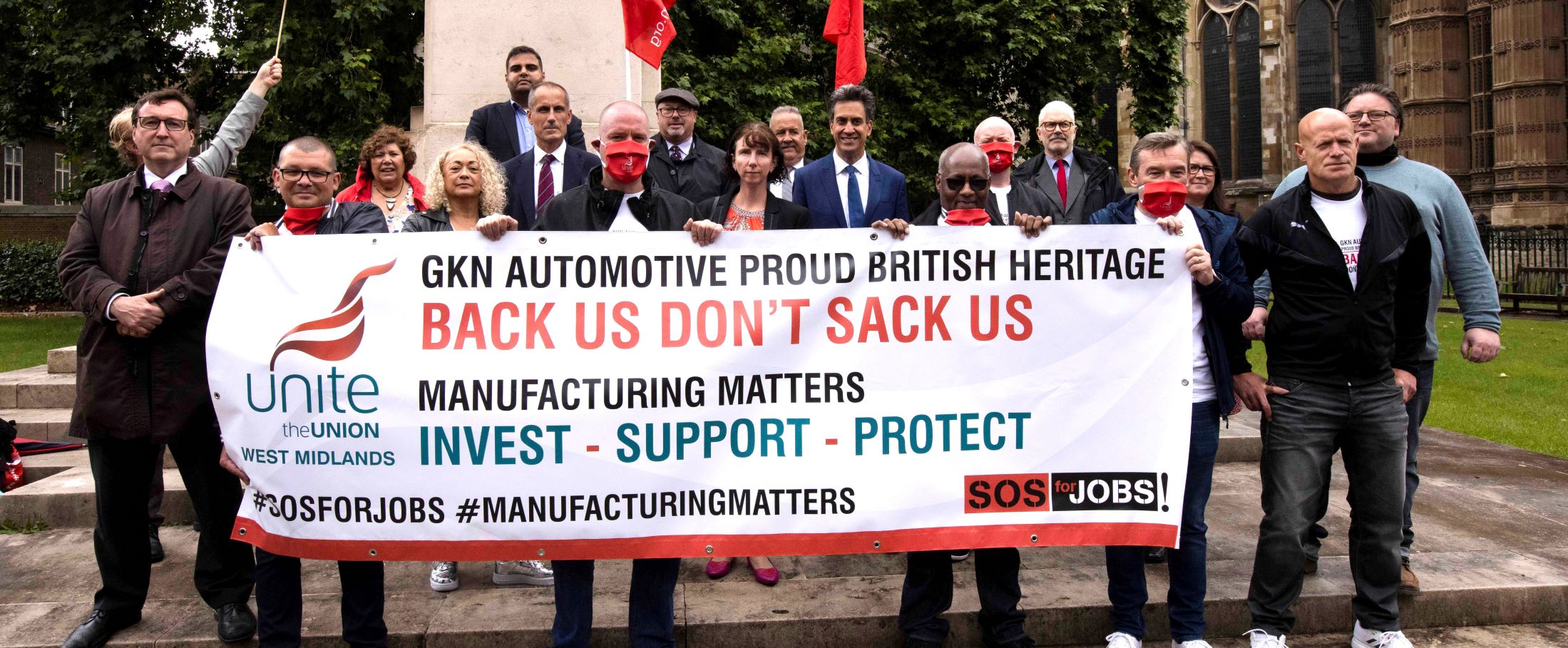‘From crisis to crisis’
The Tories are responsible for a recent deluge of gloomy economic indicators and are too bogged down in internecine conflict to come up with a long term plan to stabilise the economy, Unite has warned.
The union raised the alarm ahead of next month’s Budget, saying the economy is being damaged because the “Tories are too focused on their own infighting to provide political leadership”.
Worrying data
Recent Office for National Statistics (ONS) data currently puts the UK at the bottom of the G7 for growth.
The ONS figures were released just days before the results of closely-watched purchasing managers’ index (PMI) surveys on the manufacturing, construction and services sectors were published last week.
UK construction was found to be heading into recession in September as the sector began to contract.
In the services sector there were subdued business-to-business sales and delayed decision making on large projects in response to Brexit related uncertainty.
British manufacturers also showed signs of restricted growth, according to the PMI survey, after a boost to exports due to a weak pound was offset by Brexit fears and increased production costs.
Worrying data also emerged from the automotive sector last week, when it was revealed that UK car sales fell by 9.3 percent in September.
The drop follows five months of declining sales for the auto industry, meaning there is a real danger that UK car registrations will see their first annual fall in six years.
The bad news kept coming on Friday, after new ONS data showed the productivity of UK workers fell in the three to months to June. The 0.1 per cent drop followed a larger 0.5 per cent fall in productivity during the three months to March.
The fall puts the UK the fifth out of the G7 economies, with only Japan and Canada having lower productivity levels.
Low-skill, low-pay economy
The failure to raise productivity levels has been attributed to the UK’s increasing reliance on a low-skilled low-pay economy.
Although unemployment is relatively low, the trend has resulted in meagre wage growth that has fallen behind increasing living costs.
This week the Office for Budget Responsibility (OBR) is expected to concede that its previous forecasts for productivity growth have been too optimistic.
The OBR will announce that the low productivity experienced since the 2008 financial crash is likely to carry on for several more years and that its March forecast needs to be downgraded.
As well as boding ill for wage growth and living standards, the downgrade will also hurt tax receipts.
Report’s indicate that treasury officials believe the OBR’s reevaluation could wipe £18bn from the chancellor’s £26bn “war chest”, created during the last budget to use in the event of a chaotic Brexit.
Long-term plan call
“The Tories are too focused on their own infighting to provide political leadership or come up with a long term plan which would bring stability to industry,” Unite assistant general secretary Tony Burke said.
“Instead they lurch from crisis to crisis, taking the occasional break from their scheming to try and deal with the next high profile investment decision or the potentially devastating closures of large manufacturing sites such as Delphi in Suffolk or Cummins in Lincolnshire.
“That’s before they get to the trade dispute between Bombardier and Boeing, which puts thousands of jobs in Northern Ireland at risk while blowing a hole in the Tories’ plans for an easy trade deal with Trump’s America.”
Burke also criticised the government’s inept handling of the Brexit negotiations, which is creating uncertainty for business and causing the economy to slow.
He said, “In the background to this is the countdown to Brexit and it’s clear that David Davis’ team are no closer to any sort of deal. The problem isn’t a tactical display of British bulldog stubbornness at the negotiating table as Davis would have us believe.
“The problem is the government doesn’t know what it wants. As any negotiator worth their salt knows, if you don’t demand something you risk ending up with nothing.”
Burke said UK manufacturing needs a long-term vision, brought together in an industrial strategy.
Such a strategy would plan new public investment in infrastructure projects to support foundation industries; create new, highly skilled jobs in emerging technologies, and restore balance and stability to industry.
Burke added, “It becomes clearer every day that Labour is the only party with such a plan.”
 Like
Like Follow
Follow
